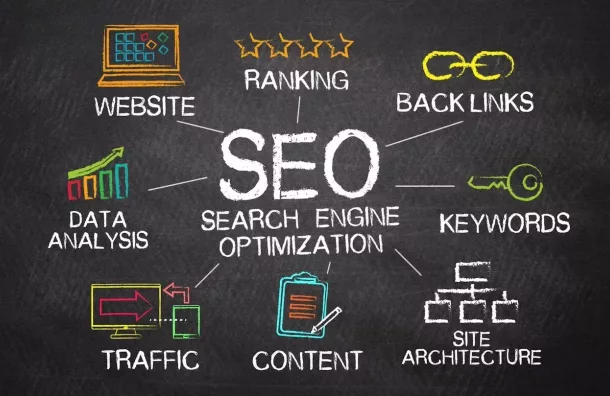
Navigating the Digital Landscape: Crafting an Effective SEO Strategy
In the ever-evolving realm of digital marketing, search engine optimization (SEO) stands as a cornerstone for businesses seeking to establish their presence online. By understanding and implementing effective SEO strategies, organizations can elevate their online visibility, attract organic traffic, and ultimately drive conversions.
Demystifying SEO: A Comprehensive Overview
SEO encompasses a multifaceted approach to optimizing websites to rank higher in search engine results pages (SERPs). It involves a blend of technical, on-page, and off-page efforts aimed at enhancing a website's relevance and authority in search engines' eyes.
1. Keyword Research: Unveiling the Language of Your Audience
Keyword research forms the bedrock of any SEO strategy. It involves identifying the terms and phrases that your target audience utilizes when searching for information related to your products or services. This research helps you tailor your content and website structure to align with user search intent.
2. On-Page Optimization: Crafting Compelling Content for Search Engines and Users
On-page optimization involves meticulously crafting website content that prioritizes both search engine algorithms and user experience. This includes optimizing page titles, meta descriptions, heading tags, and content itself with relevant keywords while maintaining readability and value for visitors.
3. Technical SEO: Ensuring Your Website Runs Smoothly and Efficiently
Technical SEO ensures that your website's infrastructure is optimized for search engines and user navigation. It encompasses aspects such as site speed, mobile responsiveness, and proper crawlability, ensuring that search engines can easily index and understand your website's content.
4. Link Building: Earning Trust and Authority Through External Endorsements
Link building involves strategically acquiring links from reputable websites to enhance your website's authority and credibility. These backlinks serve as signals to search engines that your website is trustworthy and valuable, boosting your ranking in SERPs.
5. Content Marketing: Creating Valuable and Engaging Content
Content marketing is a crucial aspect of SEO, as it attracts organic traffic and establishes your brand as an authority in your industry. By creating high-quality, informative, and engaging content, you attract visitors who are more likely to engage with your website and convert into loyal customers.
6. User Experience (UX) Optimization: Keeping Users Engaged and Coming Back for More
UX optimization focuses on enhancing the overall user experience on your website. It ensures that visitors find your content easily, navigate smoothly, and have a positive interaction with your brand. A positive UX fosters repeat visits and boosts brand loyalty.
7. Measuring and Adapting: Continuously Evaluating Your SEO Performance
Measuring and analyzing your SEO efforts is essential to track your progress, identify areas for improvement, and adapt your strategy accordingly. Utilize analytics tools to gauge website traffic, engagement metrics, and keyword rankings.
Embracing SEO for Long-Term Success
SEO is not a one-time effort but an ongoing process that requires dedication, continuous learning, and adaptation to ever-changing search engine algorithms. By implementing a well-structured SEO strategy, organizations can effectively attract targeted organic traffic, drive conversions, and establish their brand as a leader in their respective industries.
